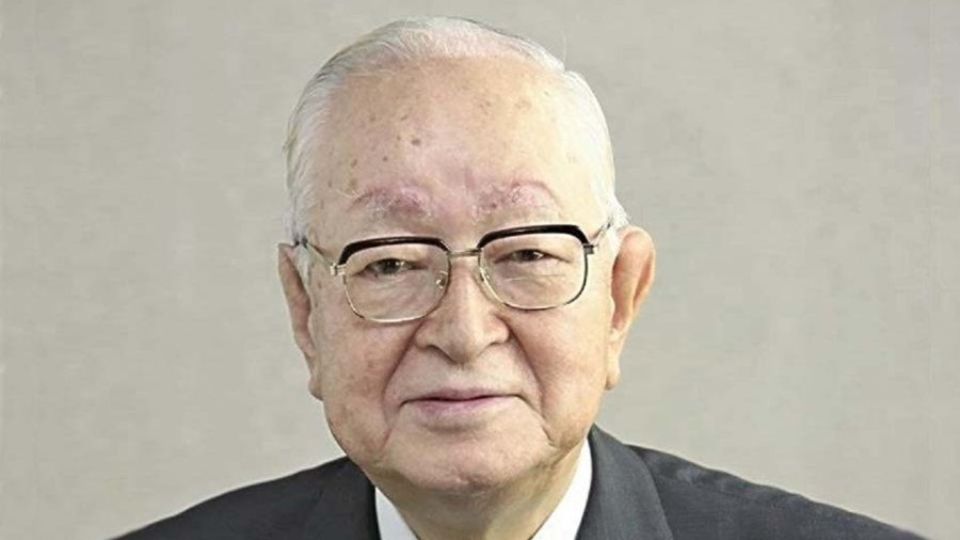December 20, 2024
TOKYO – Tsuneo Watanabe, representative director and editor-in-chief of The Yomiuri Shimbun Holdings, died on Thursday. He was 98.
Watanabe died of pneumonia at a Tokyo hospital at 2 a.m. His funeral will be attended only by close relatives, with his eldest son Mutsumi serving as chief mourner. A farewell ceremony is scheduled to be held at a later time.
Watanabe had come into the office regularly until the end of November to attend board meetings and editorial meetings, at which he had overseen the company’s management and editorial policy from a broad perspective. He had been in poor health since the beginning of this month and was receiving treatment at a hospital.
Despite this, he continued carrying out his duties as editor-in-chief, including checking manuscripts for editorials, even in the days leading up to his death.
Born in Tokyo, Watanabe graduated from the University of Tokyo and joined The Yomiuri Shimbun in 1950. He served in various positions, including Washington bureau chief, and also doubled as senior deputy managing editor of the editorial bureau and editor of the political news department.
Watanabe also served as editor-in-chief, senior managing director and editorial board chairman, before being appointed as the paper’s representative director, president and editor-in-chief in 1991.
Following the transition to a holding company structure in 2002, Watanabe served as The Yomiuri Shimbun Holdings’ representative director, president and editor-in-chief for nearly two years. He then became representative director, chairman of the board and editor-in-chief before taking up his final position in 2016.
Watanabe learned about management under the late Mitsuo Mutai, the honorary chairman of The Yomiuri Shimbun who established the company’s foundation as a national newspaper. Mutai was known as the “deity of sales” for boosting the Yomiuri’s circulation to the highest in Japan and then in the world.
During Watanabe’s tenure as president, the circulation of The Yomiuri Shimbun topped 10 million copies for the first time in 1994. It reached a record 10,310,091 in January 2001.
Watanabe established a liberal conservative line for The Yomiuri Shimbun’s editorial policy with a moderate, realistic perspective and opened new ground as a media organization with numerous proposals. In particular, The Yomiuri Shimbun published a proposal in 1994 to amend the Constitution so as to stipulate the possession of self-defense capabilities, the establishment of environmental rights and the creation of a constitutional court.
This caused a stir over the topic of constitutional amendment, which had previously been considered taboo.
Watanabe also served as chairman of the Japan Newspaper Publishers and Editors Association for two terms of two years each from 1999, and worked to promote the culture of print media and realize healthy sales competition through the maintenance of door-to-door delivery.
In 2000, the association established a new Canon of Journalism for the first time in 54 years. Watanabe helped enhance the ethical standards of the press by setting out the basic spirit that all newspaper journalists should uphold, through such means as establishing a section for “Respect for Human Rights” in the code.
Also in 2000, The Yomiuri Shimbun announced “The Creed of The Yomiuri Shimbun,” which set out the direction of the newspaper’s reporting and editorial activities and included such points as internationalism as a way of contributing to world peace and prosperity.
Watanabe was the owner of the Yomiuri Giants baseball team for about eight years from 1996. He also served as Yokozuna Deliberation Council chairman for sumo, a member of the government’s Fiscal System Council and chairman of the advisory council on safeguarding information.
As a member of the government’s administrative reform council from 1996 to 1998, he was committed to compiling a report to reorganize the then General Administrative Agency of the Cabinet and 21 ministries and agencies into the Cabinet Office and 12 ministries and agencies.
Watanabe was on good terms with former prime ministers such as Yasuhiro Nakasone, Shinzo Abe and Fumio Kishida and had a strong influence on politics and various other fields.
In 2007, he was awarded the Newspaper Culture Award, which is given to journalists who have made outstanding contributions to society and culture through their work in journalism and newspapers.
In the autumn of 2008, Watanabe was awarded the Grand Cordon of the Order of the Rising Sun for “his many years of involvement in the newspaper industry, his efforts to develop the industry, and his contributions to the development of the press culture.”
Watanabe was named Commander of the Order of Arts and Letters in 1996, the highest cultural decoration given by the French government, and also received the Media Person of the Year Award at the 54th Cannes Lions International Advertising Festival in 2007.
In his later years, he gave a long interview to NHK, and the content was broadcast between 2020 and 2021 in three parts: “Showa,” “War and politics” and “Heisei.” This May, a book titled “Habatsu to Tatoka Jidai” (Factions and the era of multiple parties) that he wrote in his younger days was republished.

